Bennie walked distracted down the corridors of the building, through a warren of bright white halls and past the door to the United States marshal’s office, flanked by framed movie posters of Kevin Costner as Wyatt Earp and Tommy Lee Jones in U.S. Marshals . Evidently everybody was having trouble separating fiction from reality this morning. Bennie walked on, considering her situation. It couldn’t have been Alice in the restaurant, could it? She hadn’t seen her there, and she would have noticed her doppelgنnger eating dim sum. It seemed impossible, or at least unlikely. No reason to jump to conclusions. Alice had no business in town, and she’d said she’d never come back. The judges had simply made a mistake. They did that all the time, whenever they ruled against Bennie. She tried to laugh it off, but she wasn’t laughing.
She reached the office of the district court clerk and opened the double doors into the large office, buzzing with characteristic activity. Facing the entrance was a long Formica counter of fake wood, and behind it fifty-odd court employees hustled back and forth with court documents or keyboarded at their desks in maroon cubicles covered with American flags and Eagles calendars. Bennie never lost sight of the fact that even the biggest lawsuit started with a single complaint, which would be accepted by someone, time- and date-stamped, then assigned to somebody in a black robe. The employees in the clerk’s office, dressed in rugby shirts and Cherokee jeans, were as integral to the justice business as the guys in the black robes, and Bennie had come to know many of the clerks personally over time. She took a place in line at the counter, suppressing nagging thoughts about Alice.
“Yo, Joe,” she said, settling when she reached the front of the line. Joe Grimassi, the clerk at the counter, greeted her with a smile. He was a twenty-five-year-old in a blue oxford shirt and khakis, and he attended Temple Law at night.
“Hey, Bennie. How you been?”
“Good.” She reached into her briefcase, slid out a manila folder containing the complaint, the civil cover sheet and the other papers, and her check for the filing fee. “How was your Civ Pro exam?”
“Last semester? I got an A! Thanks for your help. I really appreciate it.”
“No problem. Res judicata’s a bitch.”
“Tell me about it. If it weren’t for you, I’d be screwed. So, what do you have for me today?” Joe held out his hand, and Bennie passed him the papers and check.
“A class-action complaint. I’m an old dog, learning new lawsuits.”
“I recognize this defendant.” Joe nodded, skimming the caption. “I heard this case is gonna be a monster. We already had four other complaints filed in it last week.”
Huh? “Already? You’re kidding. From who? Whom?”
“The usual suspects. Kerpov, Brenstein, Quinones, and Linette’s firm. Linette filed first, of course.”
“I shoulda known.” Bennie was kicking herself. So much for getting ahead of the curve.
“These class-action jocks, they don’t sit on their thumbs. Not on a case this big, with lead counsel in play. It’s a gold rush.” Joe leaned over the counter like a co-conspirator. “And you didn’t hear it from me, but the word is Bill Linette signed the lead plaintiff.”
“The lead plaintiff?” Bennie couldn’t believe it. Bill Linette was the heaviest hitter in the class-action bar. He’d supposedly been given the nickname “Bull” because he was so tough, but Bennie knew a better reason. “How can he? I have the lead plaintiff. Robert St. Amien.”
“Not according to Linette. His messenger spilled the beans. I forget the plaintiff’s name.” Joe set aside her papers, filled out a receipt for her check, and assigned her a case number. “Looks like you and Big Bull will have to duke it out. Celebrity Lawyer Deathmatch. Kick his ass for me, would you?”
“Bet on it, Joe.” Bennie felt her juices flowing. “Lemme see a copy of Linette’s complaint.”
“Believe me, it ain’t Oliver Wendell Holmes. It took him about ten minutes to write, if that.” The clerk went to a desk nearby, looked through a file, extracted a manila folder, and returned to Bennie. “Here we go. You know the rules, give it to the guys in the copy department over there.”
“It hasn’t been assigned to a judge yet, has it? Say no.” Bennie wanted time between her alleged public drunkenness and the case assignment, but one look at the file told her that it wasn’t to be. The judge’s name had been stamped in large red letters at the top. HONORABLE KENNETH B. SHERMAN. It was Judge Sherman, the birthday judge, who had liked her until he found out she was in rehab. “Thanks a lot, Joe,” she said as he motioned for the next lawyer in line.
Bennie moved out of the way with the file folder and joined the long line at the copy department, where she opened the folder. Mayer v. Lens Manufacturers Association of Pennsylvania et al., read the caption, and she winced. One Herman Mayer had already been given the lead plaintiff position, at least in the caption. She flipped through the complaint while she waited in line, with increasing anger. It was only three pages long, with just the barest bones of pleading, stating the reasons the case should be a class action and the cause of action. There were no details, no specifics, no dates, no wrongful statements alleged. It wasn’t a complaint, it was a bookmark.
Bennie turned the page to the claim for damages, at the end of complaints in capital letters. She had to read the capitals three times before she could convince herself what was really printed there, in black and white: SEVENTY MILLION DOLLARS. Her eyes popped. Seventy million dollars! No way was Mayer’s case worth that much! He hadn’t built a plant, as St. Amien had. It went way beyond the norm, even for kamikaze plaintiff pleading. No wonder Linette had beaten her to the courthouse. If the fee was a standard percentage, he could make as much as 30 percent of seventy million bucks. She’d need a twelve-step program to figure the final total.
“Hey, lady,” said a gruff voice from behind her in line, a messenger from one of the big law firms. “You gonna copy that or not?”
“Yes, sorry.” Seventy million! Shaken, Bennie moved forward and began fishing at the bottom of her purse to find money for the copies, fifty cents a page. She needed to buy a new wallet. But she couldn’t get past the request for damages. Seventy million dollars! “That’s a lot of money!” she heard herself say.
“Fifty cents a page, I’ll say,” the messenger agreed.
Bennie had the complaint photocopied, returned the file, left the courthouse, and stormed rather than walked all the way back to the office. She couldn’t shake her terrible mood. It was another unseasonably warm day but she didn’t notice. She hadn’t eaten but she wasn’t hungry. She reached her office building full of steam, worry, and purpose, but all of it vanished when she stepped off the elevator.
And realized what was happening.
Near the wall in the reception area, two workmen in the navy blue jumpsuits of the building-management company were posting an eviction notice of a color Bennie hadn’t yet seen. White. Laser-printed. No-nonsense. Eek . Bennie hurried to the workmen as the associates rushed her like abandoned baby birds.
“Boss!” Carrier said, almost tripping over a new delivery from J. Crew. “They say they’re evicting us! We have to get out in thirty days.”
DiNunzio had paled as white as her oxford shirt. “They can’t do this, can they?”
“Of course not.” Murphy folded her arms, seething in a manner perfected by redheads. “I told them they’d be in deep shit when you got back.”
Читать дальше
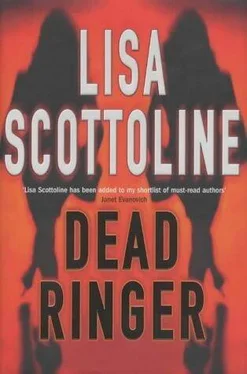


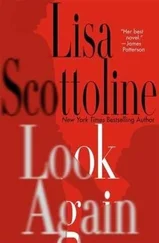

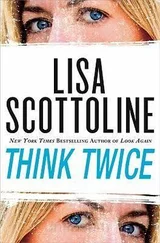
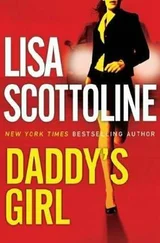
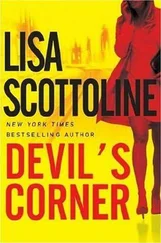
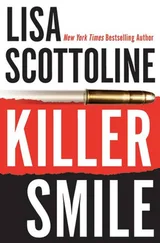
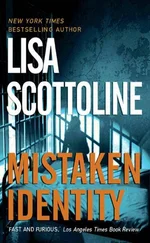

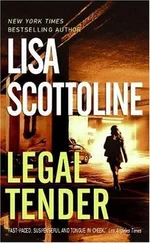
![Джеймс Чейз - Safer Dead [= Dead Ringer]](/books/430347/dzhejms-chejz-safer-dead-dead-ringer-thumb.webp)